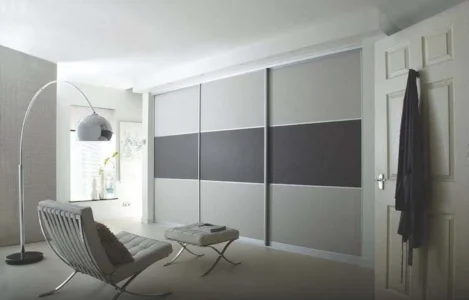For many years it has been almost an unwritten rule that upstairs bedrooms should be carpeted. There were many reasons for making this assumption, such as heat and sound insulation benefits. However, as home building designs and techniques have improved such considerations have become dated and often redundant. These days there are many various bedroom flooring options to choose from but which one is best for your home?
Carpeting:
A lovely plush carpet is still the preferred choice for many homeowners, thanks to the warm and soft cushioning that it provides. There are few things worse than stepping out of bed following a good night’s sleep only to be shocked awake by a cold, hard floor beneath your still-warm feet. Sound insulation is another key reason why many of us still choose carpets in our bedrooms too and, although there have been many improvements over recent years with sound insulation materials, a good bedroom carpet is still one of the best ways to ensure that snoring and other bedroom noises aren’t heard throughout the rest of the house.
Cost is major factor when assessing why so many of us opt for carpet in the bedroom. Relatively speaking, carpet can be a cheap flooring technique, with decent quality carpets starting in price from just a couple of pounds per square
metre.
The one major drawback to using carpet in the bedroom – or any other room in the house for that matter – is its difficulty to clean. Liquid spills are quickly absorbed into carpets and even down into the underlay as well, making it almost impossible to be cleaned fully.
Hardwood Flooring:
In the days before the rise in popularity of carpeting in the home, hardwood flooring would have been used both downstairs and upstairs. Beautiful and hard wearing planks of oak, walnut, cherry, ash, teak and other woods create a natural beauty that can transform a bedroom – especially if you are aiming for a traditional feel. And while you may not have the immediate warmth of carpet under your feet, large rugs do tend to work perfectly with hardwood surfaces.
The obvious downside to hardwood flooring in the bedroom is the lack of sound and heat insulation. However, as modern homes become more insulated as a whole, heat loss issues are fairly minimal, although sound does still tend to travel through hardwood – even with extra attention paid to sound insulation when laying the floor.
Laminate Flooring:
Over the past decade or two laminate flooring has become more an more popular for UK homeowners due to the huge variety of finishes that are available to match your décor, the low cost when compared to hardwood flooring and also due to how easy it is to keep clean. This popularity isn’t limited to the ground floor of your home either. More and more people are choosing to install laminate flooring in the bedroom, giving the room the look and feel of hardwood but without the cost. What’s more, laminate bedroom flooring can be laid over insulation such as underlay, reducing noise transference while also offering greater heat insulation when compared to hardwood bedroom flooring.
The main downside to laminate flooring is wear. Unlike hardwood, laminate flooring cannot be sanded down and refinished. Once it has worn through it will need lifting and replacing, although the bedroom flooring will receive much less general wear and tear than the living room or dining room.




